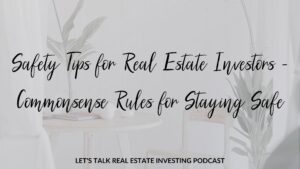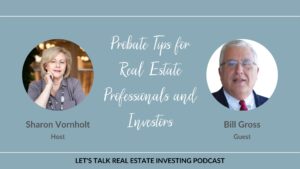The SAFE Act of 2008 took everyone by surprise. Even though the law was passed in June of 2008, most people including real estate investors, attorneys, and title companies didn’t immediately know about the new law.
Once everyone began to hear about the law, things quickly changed. For many real estate investors that routinely did seller financing, those practices came to a screeching halt. I should say for those investors and other real estate professionals that actually followed the law. Many folks ignored the whole thing and went right on doing business as usual which is a very dangerous proposition.
HUD Speaks
When the SAFE Act came out in June of 2008, Congress went to HUD at the same time and asked them to look at the law and come up with some rules and regulations that would provide clarification and answer some of the questions folks had. Everyone was told that they would have an answer by June 2011, and on June 30th 2011 they responded.
It was expected that HUD would issue a statement allowing real estate investors to provide seller financing somewhere between 3 and 10 times per 12 month period, and still be within the guidelines of the law.
Much to everyone’s surprise, that is not what they did. HUD said that if you didn’t make a habit of doing owner financing the SAFE Act didn’t’ apply to you. However, if you “create a habit of being a lender” then the SAFE Act does apply to you. They also coined the word “habitualness”.
At the beginning of 2011, individual states were given until June 30th 2011 to come up with a plan for their individual state and all of them have done so. However, at this time, there is no central place where you can go to get this information.
What exactly is “habitualness?”
HUD said that they would decide on a case by case basis if the law had been violated. They further said that they would be looking at “habitualness”. What the heck does that mean? Do two or more loans constitute habitualness? Or is it more like 6 or 8? The answer is that no one knows. This creates a whole lot of uncertainty for real estate investors everywhere.
Who does the law apply to?
An investor cannot do owner financing for retail buyers. In most cases a contract for deed falls under the provisions of the SAFE Act.
Who is exempt from the law?
If you don’t make a “habit” of providing financing (whatever that means) the SAFE Act doesn’t apply. According to my friend and local real estate attorney Harry Borders, it’s not likely you will be considered a habitual lender if you sell a vacation home or sell inherited property.
Here are some other exemptions:
- Non-resident or “investor to investor”
- 1 to 4-plex
- An investor buyer is OK.
- Owner occupied seller
- Close relative (there are rules about this)
- Lease options
- Multi-family buildings (5-plex or more)
- Commercial, farm land and vacant land
- Subject to deals
What about land trusts?
They are likely to take look at whether or not the same LLC or trustee is on these documents. The conservative answer therefore is that this would constitute habitualness if the same entity or trustee is used again and again. There is a way to do this and stay within the SAFE Act and I will go over this.
What can you do?
Contact your state Department of Finance sometimes known as the “bank police” and have them go come up with a definition for your state for “habitualness”. Get your state Board of Realtors, Home Builders Association, real estate attorneys and other folks that have some clout involved in making changes in HUD’s definition of the SAFE Act.
The bottom line
The bottom line is that the buyer is always safe. This law applies to the person providing financing therefore it’s the seller that is going to be in hot water with seller financing.
How do you get caught? Typically it will be a consumer complaint that gets the real estate investor providing seller financing in trouble. Fines can be thousands upon thousands of dollars for violating the law. And when the “bank police” find that you have broken the law one time, they can demand that you produce all seller finance deals that you have ever done. If you are found to be in violation of the law not only can you suffer heavy fines, but you will not be allowed to profit from the interest in the transactions. This is huge!
Check out the video. Learn how to stay safe.
As I said, my friend Harry Borders is a much respected local real estate attorney. He has put together a video that will clarify most of the issues and questions you might have regarding the Safe Act of 2008. He has been on top of this situation since it first came to light. He also has a rock solid way to stay within the law with his 5M Trust System. You can find it at this youtube link: Safe ACT Video or at http://AskHarryBorders.com which was recorded on one of Mike Butler’s Power Lunch Series.
You can also find information here on Harry's 5M Trust System at AskHarryBorders.com.
For more information on super investor Mike Butler’s free 30 minute Power Lunch Series click here .









